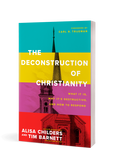|
Let me start by saying I like Rob Bell. (You didn't think I was going to say that, did you?) As a part of some research I'm doing on Progressive Christianity, I've spent quite a bit of time with him lately—listening to lectures, interviews, and reading his books. Of all the Progressive authors I'm currently reading (Rachel Held Evans, Richard Rohr, Brian McLaren, Steve Chalke, and Pete Enns among others), I enjoy Bell the most. This doesn't mean I agree with much of what he says, but he's articulate, clear, engaging, and seems like a genuinely nice person. I recently read Bell's, What Is the Bible? How an Ancient Library of Poems, Letters, and Stories Can Transform the Way You Think and Feel About Everything. (That's one heck of a title.) With chapters like, "Moses and His Moisture," and "Smoking Firepots," and "And the Fat Closed In Over the Sword," Bell's creativity and excitement about his work is palpable. One thing he excels at is storytelling and bringing in contextual clues that help the reader understand the bigger picture of the Bible. Sometimes he does this in a way that left me smiling and nodding in agreement. Other times it left me pulling out my hair and arguing with my computer (I read it on Kindle.) At times, the "bigger picture" he painted was entirely foreign to the Bible. I've learned that when reading Rob Bell, I must always question his premises. He is brilliant at building a dazzling and compelling interpretation around a false premise. Before you realize what's even happened, you've jumped down a completely different rainbow, harvesting trinkets from an entirely different pot of gold—that may not contain any real gold at all. Here's an example. In a chapter called, "The Human and the Divine," Bell points out that the Bible was written by humans. He repeats this often throughout the book and even states in the introduction that "the Bible is a book about what it means to be human." (p. 4) He points out that "when you start there, [with the understanding that the Bible was written by humans] and you go all the way into the humanity of this library of books, you just may find the divine." (p.183) At this point, most people will just continue reading like nothing happened. But this is what I'm talking about—this is a false premise. Let me explain. One key to critical thinking is to always question the premises. Someone can present an argument that is logically valid, but still wrong. Consider this argument: Premise 1: All breeds of cattle have purple stripes. Premise 2: Jersey cow is a breed of cattle. Conclusion: Jersey cows have purple stripes. Do Jersey cows have purple stripes? Of course not. But even though the conclusion is false, it correctly followed the premises, so technically, the argument is valid. This is why premises are so important. Let's look at Bell's premise. Was the Bible written by humans? It's true that the Bible was written by humans. But that's not the whole story, and therefore it should not be our starting place as Bell suggests. This is a lopsided view of how the Bible was written. God certainly used many different people who lived in various cultures and time periods to write the words of Scripture, but as Paul says in 2 Timothy 3:16, "All Scripture is inspired by God and is profitable for teaching, for rebuking, for correcting, for training in righteousness." The Greek word translated as "inspired by God" does not mean "inspired" in the same way a poet is inspired by his muse, or like a dancer who gives an inspired performance. It means breathed out by God. When referring to the prophecies in the Old Testament, the Apostle Peter wrote, "No prophecy ever came by the will of man; instead, men spoke from God as they were moved by the Holy Spirit." (2 Peter 1:21) Jesus said that when David wrote Scripture, he was "speaking by the Spirit," and He affirmed over and over again that He believed the Scriptures to be the very Word of God—inspired, authoritative, and historically reliable. Are Paul, Peter, and Jesus wrong? Bell's premise suggests they are. His starting point is to throw out the doctrine of divine inspiration, or at least the traditional understanding of it. There is a short chapter in which he dances around the word "inspired," painting its meaning with the broadest of brushes. When he explains Paul's use of the Greek theopneustos, (God breathed), he writes that Paul simply meant, "They’re books, but they’re more than books." (p. 286) He compares this with being inspired by a song or having "something good, hopeful, true, comforting, healing, or genuine" breathed into you. (p. 286) At the end of the chapter, he makes an important yet subtle distinction. He writes, "The Bible is inspired, in much the same way you are inspired. . .You’re just a humble, stumbling bag of bones and skin, and yet the divine, infinite, eternal creative force of the universe has breathed into you." When he compares that with the way the Bible is inspired, he writes that this "Library of books. . .have been breathed into. . ." (p. 287) This may not seem all that controversial, except that it implies the books were first written, then inspired. The Bible teaches that the writers of Scripture themselves were "moved by the Holy Spirit" to write His "God-breathed" words...not that God took what they had already written and made it inspirational. What's at stake? If Bell's starting point is that the Bible is primarily a human invention, it's no surprise that he doesn't consider the events it records to be historically reliable. When expounding on the idea that the Bible was written by humans, (are you seeing a theme here?), Bell wonders why Mary and the disciples didn't recognize the resurrected Jesus when they first saw Him. He casually mentions in parenthesis:
See what he did there? He's just assuming that his readers are too smart to think that Jesus' resurrection was actually "literal" (contrary to what virtually every Bible-believing Christian has affirmed for the last 2,000 years). He doesn't take the time to make that case (biblical or otherwise) or even to address the theological ramifications of tossing it aside. And just like that—he takes down a core essential Christian doctrine with nothing more than a parenthetical quip. He was able to do this because he had already set the reader up to believe the Bible is a book about what it means to be human.
At this point, Bell has positioned himself (and the reader) over Scripture as the highest authority and arbiter of truth. And he accomplishes this in just a few well-written, engaging, witty paragraphs. I do have some points of agreement with Bell. For example, he writes that the Bible should be read "literately." This means reading it according to its genre and cultural context. I couldn't agree more. However, he almost immediately explains this to mean that any time there is something "extreme" (like Elijah being caught up into heaven), we should take that as a clue that it's probably not historical. (p. 80) His underlying premise that the Bible is more human than divine will surely taint any good point he makes. Is the Bible primarily a human book? Jesus, Paul, and Peter didn’t believe so—and I think I’ll stick with them.
38 Comments
Philip A Jones
8/27/2018 10:30:55 am
Hi Alisa, super analysis. I've been hammering on this issue (progressive/contemporary christianity) at church for over 2 years (but with no effect) so thanks for the encouragement.
Reply
Alisa Childers
8/27/2018 10:48:11 am
Thanks, Philip. I'm sure you are having more of an effect than you realize. Gal. 6:9
Reply
Jules Wallace
8/27/2018 02:50:11 pm
Alisa, I so appreciate your reflection and response to Bell's work and apparent disregard to the inspiration of the HS in believers and the oh so Holy scriptures. I've read his blogs several times to understand all the hoopla, and came away with much the same conclusion . He seems to be telling us what we should believe against all other learned free thinking apostles and ourselves. Maybe he thinks he'll find a following with those who are afraid of critical thinking or who haven't studied the bible in deptb.
Reply
Andrea
8/27/2018 10:31:34 am
I have noticed a trend recently and wonder if this ties into your post today...I will sometimes read or hear a progressive Christian say they take the Bible *more* seriously than someone who has a more literalist belief, because they are interpreting it “the way it was meant to be read”, and that we shouldn’t “make the Bible say what it wasn’t meant to say”. It sounds ok on the surface, because of course, you’ve got to take context, culture, and genre etc into consideration...but I highly suspect that people who say these things mean *a lot* more than just considering context. It’s pretty sneaky because it sounds intelligent and appeals to Christians, because what Christian *doesn’t* want to take the Bible seriously? Just an observation I’ve had...
Reply
Alisa Childers
8/27/2018 10:45:27 am
Spot on, Andrea. It's the core thesis of Pete Enns' book, "The Bible Tells Me So." I hear it all the time in progressive circles.
Reply
Valarie West
8/27/2018 03:13:13 pm
I stumbled onto this today and really love your insights. About 6 years ago, I was comfortably agnostic, but a newspaper article about LOVE WINS by Rob Bell caught my attention and I ordered it. I knew less than nothing about the Bible (other than a lackluster Catholic upbringing) and God. Bell's words were the first of many signposts I followed to Christianity. As I studied, searched, and ultimately accepted Jesus with my whole heart and soul, I began to see all the Biblical flaws in Bell's work, as you so beautifully point out in this blog. That said, he does bring *something* to the almost-believer (or did to this one) that spurred me on to find out more. For that, I'm grateful.
Reply
8/28/2018 07:50:10 am
Rob Bell et al remind me of the nursery rhyme ‘Catch a Falling Star’. They hang around because their own giant sized egos won’t allow them to lose ‘touch’ with the #oldfaithful—as they really believe their own publicity and their ‘new-life-stories: escaping from fundamentalism. Sure they most certainly feel that their ‘present’ interpretation of Scripture is best suited for a world that is persuaded that,due to other world views, the Scriptures are in error and therefore are bonifidy targets for their journalistic talents. Are not falling/fading stars attracted to black holes?
Reply
8/29/2018 01:50:12 am
Hey Valarie, I appreciate your general point, but it is still important to realize that God often uses all sorts of things to get the attention of His elect when He is in the process of preparing them for regeneration. I grew up around Mormons and God used a great deal from my time with them to get me thinking in my spiritual journey. But that doesn't change how radically false Mormonism is and your experience should not at all detract from how false Bell's presentations are either.
Reply
Kaleb Graves
8/27/2018 05:35:37 pm
I’d like to dispute a point you made here. You state that “The Greek word translated as ‘inspired by God’ does not mean ‘inspired’ in the same way a poet is inspired by his muse, or like a dancer who gives an inspired performance. It means breathed out by God.” I think it’s a bit of a non-sequitur jump to go from “God-breathed” to your view of inspiration and the scriptures. Beyond that, it’s also a bit lexically inaccurate for the Greek.
Reply
8/27/2018 08:19:24 pm
Kaleb,
Reply
Kaleb Graves
8/28/2018 12:00:24 pm
Clark,
Clark
8/28/2018 12:33:37 pm
Kaleb,
Kaleb Graves
8/28/2018 01:08:51 pm
Clark, 8/29/2018 01:47:11 am
Kaleb, you do indeed bring up some good points here. I have often found myself rather annoyed by the fact that far too often conservative evangelicals, even very good ones like Geisler, go too quickly to the famous 2 Peter and 2 Timothy texts and make too much of them. In my book on the subject of progressive Christianity, in my section on inerrancy, I very intentionally avoid this tact for some of the reasons you elucidate here and for others as well. I don't make all of my reasons explicit as it is a book intended for a lay audience, but some of my motives are what you are addressing here. It is impossible to make so much of just one term.
Reply
ERIC D NELSON
8/27/2018 07:43:04 pm
You write " The bible teaches that the writers of scripture themselves were inspired by God to write His words.."
Reply
8/29/2018 01:52:24 am
Hey Eric, good to talk to you as always my friend. I have to say that I strenuously disagree because the Bible simply does not allow for this interpretation of its own inspiration. I demonstrate this in my section on inerrancy in my book.
Reply
Alisa Childers
8/29/2018 07:48:08 am
Hi Eric, I think you're right that I worded that sentence clumsily. I actually updated it to reflect a more clear and accurate definition. The doctrine of inspiration covers the entire process from the Spirit moving on the authors, and the God-breathed words being written down. The Greek word for "God-breathed" only applies to the words themselves, but there are other verses that affirm the Spirit working through the authors.
Reply
Hendrik
8/27/2018 09:11:00 pm
I grew up in a traditional church and accepted the church’s teaching that the Bible was inerrant. Today I’m not so sure about that. I have found Incarnation and Inspiration by Dr. Peter Enns to be the most helpful book on the topic so far. His analogy of the Bible as both human and Divine like Jesus Christ seems to me to be the best way to understand the Bible.
Reply
Alisa Childers
8/27/2018 09:22:16 pm
Hi Hendrik, I'm currently reading Enns' "The Bible Tells Me So," and his premise in that book is exactly the same as Bell's. I don't mind the analogy of the Bible being human and divine like Jesus, but that analogy only works if Jesus is seen as perfect. I haven't read Incarnation and Inspiration, so I'm not sure how Enns develops that theme, but I've heard the same analogy from conservative Evangelical scholars as well.
Reply
Hendrik
8/27/2018 10:36:16 pm
Hi 8/29/2018 01:59:22 am
Hey Hendrik, the problem with Enns' thesis in that book and in all of his books is that he doesn't actually believe what he is asserting. If the Bible is fully divine, then it by definition cannot have errors. To say that God erred is blasphemous, it really is, regardless of how harsh that may sound to you or others. Humans err constantly in our current state because of the fall and not because error is intrinsic to our being. There is not evidence that Adam and Eve ever erred before they sinned, there is no evidence that Jesus ever erred, and there is no evidence that we will err in the final state. Hence, the Bible can be fully human and still be without error. The traditional doctrine is that Jesus was and is fully God and fully man. And that the Bible is fully divine and fully human. Just as Jesus could not err as God even with His full humanity, so too can Scripture not err because it is God's word even with its human authorship. Enns' doctrine is nothing new, it is simply a regurgitation of the neo-orthodox argument wherein it was said that the orthodox doctrine is actually docetic, only in regard to Scripture and not the person of Christ. This canard has been so thoroughly refuted down through the past century that it is very frustrating that it is still so popular and implicitly advocated by people like Enns and Bell.
Reply
Hendrik
8/29/2018 11:22:34 pm
Hi Dan
Alisa Childers
8/30/2018 07:58:07 am
Hendrik, the Bible actually does claim to be the Word of God—many times. In fact, I wrote a blog post citing the several times Jesus claimed it was the "Word of God" here: https://www.alisachilders.com/blog/8-things-jesus-believed-about-scripture-part-1
Hendrik
8/30/2018 09:42:09 am
Hi Alisa 8/30/2018 11:19:58 pm
Hey Hendrik, I'm responding to your comment to my comment below here because it wouldn't let me respond below. I will be responding to your comment below on my website if you or anyone else is interested. Thanks.
Reply
Benny
8/28/2018 02:10:53 am
You saved me time. Thank you Alisa. Its better to stay away from this book.
Reply
8/29/2018 01:33:45 am
Hey Alisa, another overall excellent article. I do have to say though that I still think that you and many others are still way too soft on the leaders of the progressive movement. It seems to me that outside of the Reformed camp almost no one is willing to call these leaders out as the heretics that they are. They routinely deny essentials of the faith, either implicitly or explicitly, as you yourself point out in this very article. and yet there still seems to be this hesitancy and I don't totally get it. I for one can't stand reading these guys. I did it for years as research for my book and it was very challenging to me as I often wanted to throw their books across the room. Pretty much the only part I liked from Bell's latest book was his section on Nirvana. That part I had to give a hearty amen to, but yeah that was about it.......
Reply
Alisa Childers
8/29/2018 08:00:31 am
Hi Dan, thanks! I gotta say that I've had the opposite experience regarding Evangelical hesitancy to call Bell a heretic. One of the main push-backs I've gotten from Evangelicals (not just Reformed) on this article is something along the lines of, "Why even bother with Bell? He's a heretic." And, "Why are you even reading his book?" I have seen articles getting passed around social media calling him a heretic without even interacting with his ideas beyond a surface level, and that isn't going to be helpful for honest and thinking Christians who are confused by him. I have no hesitancy agreeing that he is a heretic. However, that's not the goal of this post. My goal is to asses his view of the Bible (in just a few hundred words) and give a charitable yet truthful review. God-willing, I will expound on these things in a book one day, but for now, I'm just trying to send out some lifeboats.
Reply
8/29/2018 10:44:36 am
Hey Alisa, excellent points and I should have clarified some things better on my end, so my bad. I agree and I have run into the same things with regard to the laity. The laity often see things far more clearly than do the clergy, this has often been true throughout church history. Although I do agree that we need to encourage them not to dismiss Bell and the movement simply because it is heretical, that is a completely unbiblical approach.
Janet
8/31/2018 06:51:01 am
Hi, Alisa. I certainly wasn't as familiar with progressive Christianity to the extent that you are, but as a former Christian, I was fully aware of its threat and felt uncomfortable with what I deemed was a one foot in / one foot out approach. Having listened to the stories of many ex-Christians, I can tell you that it is a very common last stop before exiting. You mentioned critical thinking in your post. I think another key to critical thinking is avoiding circular reasoning. How do we know that the Bible is divinely inspired? Because the Bible says it is. There is no other evidence, and I think progressive Christians are aware of this and therefore cling less tightly to the dogma, often letting go altogether.
Reply
8/31/2018 12:52:42 pm
Janet, thank you for joining the conversation. If I might offer another way of looking at this, the Bible isn't exactly a reasoned argument--it's a historical book containing the testimony of many people across hundreds of years. Further, just because someone claims to be telling the truth doesn't of itself negate their claim--after all, it's done every day in courts all around our nation. It's possible that they'll lie, yes, but we don't usually operate with that assumption.
Reply
Janet
9/2/2018 11:24:25 am
Diane, I appreciate your comments and certainly felt just as you do a few short years ago. I'd like to offer a different perspective to both demonstrate the problems I see with the Bible and why progressive Christians are right to cling loosely to its teachings. In echoing your words... 9/2/2018 08:28:02 pm
Janet, I understand your point. My comment was made in the context of comparing biblical Christianity to a worldview that lands on nothing solid. There are other reasons to choose Christianity over Islam.
Reply
Jason
9/7/2018 10:43:25 pm
Great work, Alisa. I've been dealing with "progressives" since the early 2010s when I lived in Nashville and it never ceases to amaze me the hoops they will jump through to justify themselves. There's a level of intellectual dishonesty that I saw infect several churches and eventually bring down men and women of God that I never believed would sell out Jesus for the world's applause. At least we can see why the Bible is so clear about the false teachers that will appear...God knew we'd be seeing the Rachel Held Evanses and Rob Bells in this world. Keep up the great work.
Reply
KL
11/24/2021 10:16:05 pm
Didn't scroll through every comment, but I thought this opens a discussion on what really does inspired mean, and what it doesn't mean. I think what's true is that humans wrote the books, and that they wrote is according to their context, knowledge and understanding of things then, but at the same time it is also divinely inspired. I've heard ppl actually say that they think divine inspiration is God taking over your mind and causing you to write stuff, a la automatic writing, which is clearly not the case.
Reply
11/25/2021 09:40:52 am
…
Reply
12/1/2021 01:08:08 pm
1
Reply
Your comment will be posted after it is approved.
Leave a Reply. |



 RSS Feed
RSS Feed


